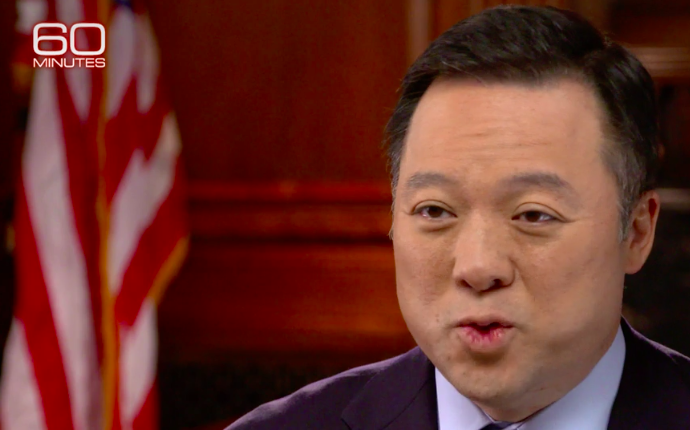Processing Your Payment
Please do not leave this page until complete. This can take a few moments.
-
News
-
Editions
-
- Lists
-
Viewpoints
-
HBJ Events
-
Event Info
- 2024 Economic Outlook Webinar Presented by: NBT Bank
- Best Places to Work in Connecticut 2024
- Top 25 Women In Business Awards 2024
- Connecticut's Family Business Awards 2024
- What's Your Story? A Small Business Giveaway 2024 Presented By: Torrington Savings Bank
- 40 Under Forty Awards 2024
- C-Suite and Lifetime Achievement Awards 2024
- Connecticut's Health Care Heroes Awards 2024
-
-
Business Calendar
-
Custom Content
- News
-
Editions
View Digital Editions
Biweekly Issues
- April 29, 2024
- April 15, 2024
- April 1, 2024
- March 18, 2024
- March 4, 2024
- February 19, 2024
- February 5, 2024
- January 22, 2024
- January 8, 2024
- + More
Special Editions
- Lists
- Viewpoints
-
HBJ Events
Event Info
- View all Events
- 2024 Economic Outlook Webinar Presented by: NBT Bank
- Best Places to Work in Connecticut 2024
- Top 25 Women In Business Awards 2024
- Connecticut's Family Business Awards 2024
- What's Your Story? A Small Business Giveaway 2024 Presented By: Torrington Savings Bank
- 40 Under Forty Awards 2024
- C-Suite and Lifetime Achievement Awards 2024
- Connecticut's Health Care Heroes Awards 2024
Award Honorees
- Business Calendar
- Custom Content
Tong ups stakes and profile of drug price-fixing investigation
 PHOTO | CBS
Attorney General William Tong appeared on “60 Minutes” in 2019.
PHOTO | CBS
Attorney General William Tong appeared on “60 Minutes” in 2019.
Connecticut's new attorney general, William Tong, is dramatically expanding the scope and raising the profile of the state's long-running investigation of drug price-fixing, accusing the generic drug industry of a massive anti-trust conspiracy that has cost American consumers, taxpayers and insurers billions of dollars.
In lawsuit filed Friday in U.S. District Court and announced Sunday night by his office as "60 Minutes" aired a story about the case, Connecticut and a coalition of 43 other states accuse Teva Pharmaceuticals and 19 of the nation's other leading generic drug manufacturers of conspiring to fix prices on more than 100 drugs.
"We have hard evidence that shows the generic drug industry perpetrated a multi-billion dollar fraud on the American people. We have emails, text messages, telephone records, and former company insiders that we believe will prove a multi-year conspiracy to fix prices and divide market share for huge numbers of generic drugs," Tong said in a statement.
Tong is holding a press conference about the case Monday in Hartford, joined by consumer health advocates.
The new lawsuit is the second filed by the office against the generic drug industry, both arising from an investigation opened in July 2014, during the administration of Tong's predecessor, George Jepsen. Tong, who had been a state representative from Stamford, was elected in November and took office in January.
The investigation began when Mike Cole, who supervises the office's antitrust and fraud unit, read a story in the New York Times headlined "Rapid Price Increases for Some Generic Drugs Catch Users by Surprise." On a hunch, he emailed the story to one of his antitrust lawyers, Joe Nielsen, and they eventually asked Jepsen for authorization to issue subpoenas.
Two years later, Nielsen shared his findings at a confidential meeting with anti-trust lawyers from attorneys general in other states. A coalition lead by Connecticut, initially joined by 19 other states, filed the first suit in December 2016. The coalition quickly expanded to 40 states and now numbers 44.
The industry generally has denied any wrongdoing, although two former executives from Heritage Pharmaceuticals, one of the original defendants, have reached settlements with the coalition of states and are cooperating.
The new lawsuit names 20 corporations and 15 executives as participating in a conspiracy led by Teva. It claims the conspirators have fixed prices on more than 100 generics, turning market forces on their head and causing prices to jump by as much as 2,000 percent.
"Typically, when the first generic manufacturer enters a market for a given drug, the manufacturer prices its product slightly lower than the brand-name manufacturer. When a second generic manufacturer enters, that reduces the average generic price to nearly half the brand-name price," the suit says. "As additional generic manufacturers market the product, the prices continue to fall. For drugs that attract a large number of generic manufacturers, the average generic price falls to 20 percent or less of the price of the branded drug."
In a telephone interview Sunday night, Tong declined to say if his office withheld an announcement of the new lawsuit to time its release with "60 Minutes." The Associated Press filed a report on Saturday. Tong said his office had been rushing to finish the expanded lawsuit in coordination with the other states.
"We got it done Friday," Tong said. "60 Minutes happened to be on a parallel track."
CT Mirror first covered an element of the "60 Minutes" story in January 2017: How Cole's hunch and Nielsen's investigation put the attorney general's office of a small state at the forefront of investigating what "60 Minutes" now says may be the biggest price-fixing scheme in U.S. history.
The original case was well-covered nationally, but Tong said there has been no sustained attention of a scam that he says is central to the rising cost of U.S. health care.
"It has been a remarkably sleepy story. These are the biggest manufacturers of generic drugs — they are 90 percent of the market," Tong said. "I think people are just now starting to understand."
The suit filed Friday names 20 corporate defendants:
Teva Pharmaceuticals USA, Inc.
Sandoz, Inc.
Mylan Pharmaceuticals Inc.
Actavis Holdco US, Inc.
Actavis Pharma, Inc.
Amneal Pharmaceuticals, Inc.
Apotex Corp.
Aurobindo Pharma U.S.A., Inc.
Breckenridge Pharmaceutical, Inc.
Dr. Reddy's Laboratories, Inc.
Glenmark Pharmaceuticals Inc. USA
Greenstone LLC, (a subsidiary of Pfizer).
Lannett Company, Inc.
Lupin Pharmaceuticals, Inc.
Par Pharmaceutical Companies, Inc.
Pfizer, Inc.
Taro Pharmaceuticals USA, Inc.
Upsher-Smith Laboratories, LLC.
Wockhardt USA, LLC.
Zydus Pharmaceuticals (USA), Inc.

2022 Giving Guide
This special edition informs and connects businesses with nonprofit organizations that are aligned with what they care about. Each nonprofit profile provides a crisp snapshot of the organization’s mission, goals, area of service, giving and volunteer opportunities and board leadership.
Learn more
Subscribe
Hartford Business Journal provides the top coverage of news, trends, data, politics and personalities of the area’s business community. Get the news and information you need from the award-winning writers at HBJ. Don’t miss out - subscribe today.
Subscribe
2024 Book of Lists
Delivering Vital Marketplace Content and Context to Senior Decision Makers Throughout Greater Hartford and the State ... All Year Long!
Read Here-
2022 Giving Guide
This special edition informs and connects businesses with nonprofit organizations that are aligned with what they care about. Each nonprofit profile provides a crisp snapshot of the organization’s mission, goals, area of service, giving and volunteer opportunities and board leadership.
-
Subscribe
Hartford Business Journal provides the top coverage of news, trends, data, politics and personalities of the area’s business community. Get the news and information you need from the award-winning writers at HBJ. Don’t miss out - subscribe today.
-
2024 Book of Lists
Delivering Vital Marketplace Content and Context to Senior Decision Makers Throughout Greater Hartford and the State ... All Year Long!
ABOUT
ADVERTISE
NEW ENGLAND BUSINESS MEDIA SITES
No articles left
Get access now
In order to use this feature, we need some information from you. You can also login or register for a free account.
By clicking submit you are agreeing to our cookie usage and Privacy Policy
Already have an account? Login
Already have an account? Login
Want to create an account? Register
Get access now
In order to use this feature, we need some information from you. You can also login or register for a free account.
By clicking submit you are agreeing to our cookie usage and Privacy Policy
Already have an account? Login
Already have an account? Login
Want to create an account? Register






0 Comments